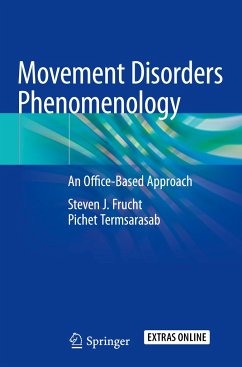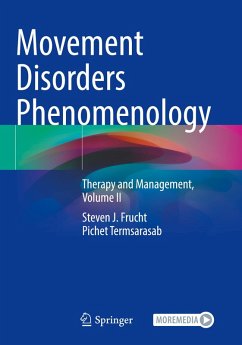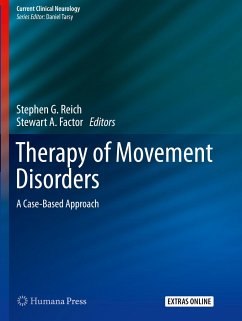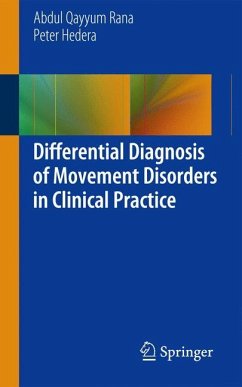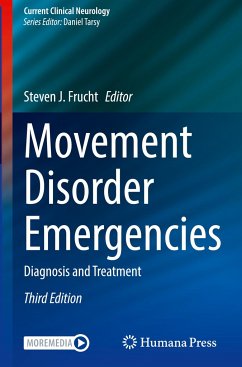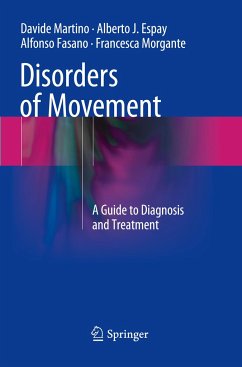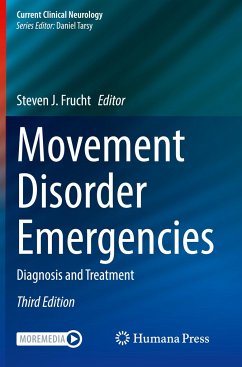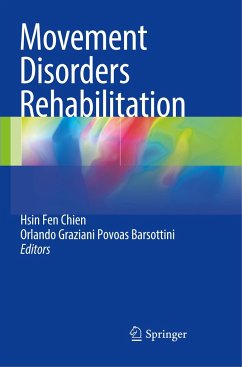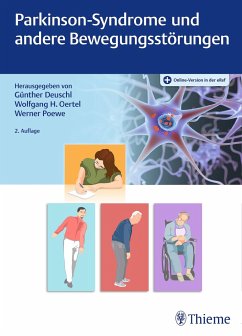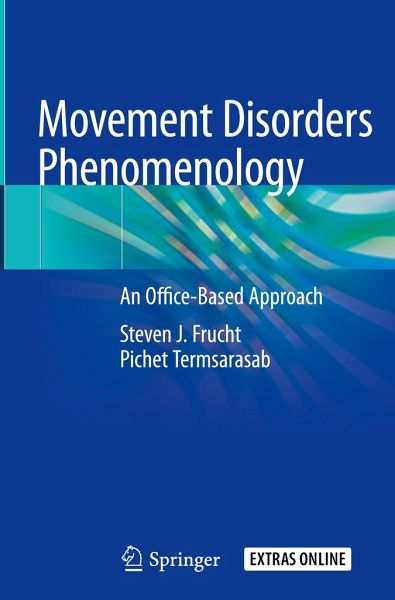
Movement Disorders Phenomenology
An Office-Based Approach
Versandkostenfrei!
Versandfertig in 6-10 Tagen
106,99 €
inkl. MwSt.
Weitere Ausgaben:

PAYBACK Punkte
53 °P sammeln!
This book presents a comprehensive, practical approach to the evaluation of movement disorders using phenomenological basic principles, new discoveries in phenomenological research, and core values of outpatient neurology.Movement Disorders Phenomenology begins with an overview of phenomenology and common approaches to movement disorder patients. Subsequent chapters then accurately and concisely relay information on major hypokinetic disorders such as atypical Parkinsonism, idiopathic Parkinson's disease, cortical myoclonus, and complex motor tics. Expertly written text is further supplemented...
This book presents a comprehensive, practical approach to the evaluation of movement disorders using phenomenological basic principles, new discoveries in phenomenological research, and core values of outpatient neurology.
Movement Disorders Phenomenology begins with an overview of phenomenology and common approaches to movement disorder patients. Subsequent chapters then accurately and concisely relay information on major hypokinetic disorders such as atypical Parkinsonism, idiopathic Parkinson's disease, cortical myoclonus, and complex motor tics. Expertly written text is further supplemented by patient vignettes at the beginning of select chapter that focus the reader's attention and highlight the urgency of the problem. These high quality videos aid in the astute clinical diagnosis of many movement disorders that are still largely dependent on visual pattern recognition in the clinic. The book closes with a timely discussion on the role of genetics in movement disorders.
Written for the practicing physician, Movement Disorders Phenomenology is an indispensable reference for neurology residents, general neurologists, movement disorders fellows and clinicians, and to any clinician who encounters and evaluates patients in the outpatient arena.
Movement Disorders Phenomenology begins with an overview of phenomenology and common approaches to movement disorder patients. Subsequent chapters then accurately and concisely relay information on major hypokinetic disorders such as atypical Parkinsonism, idiopathic Parkinson's disease, cortical myoclonus, and complex motor tics. Expertly written text is further supplemented by patient vignettes at the beginning of select chapter that focus the reader's attention and highlight the urgency of the problem. These high quality videos aid in the astute clinical diagnosis of many movement disorders that are still largely dependent on visual pattern recognition in the clinic. The book closes with a timely discussion on the role of genetics in movement disorders.
Written for the practicing physician, Movement Disorders Phenomenology is an indispensable reference for neurology residents, general neurologists, movement disorders fellows and clinicians, and to any clinician who encounters and evaluates patients in the outpatient arena.



